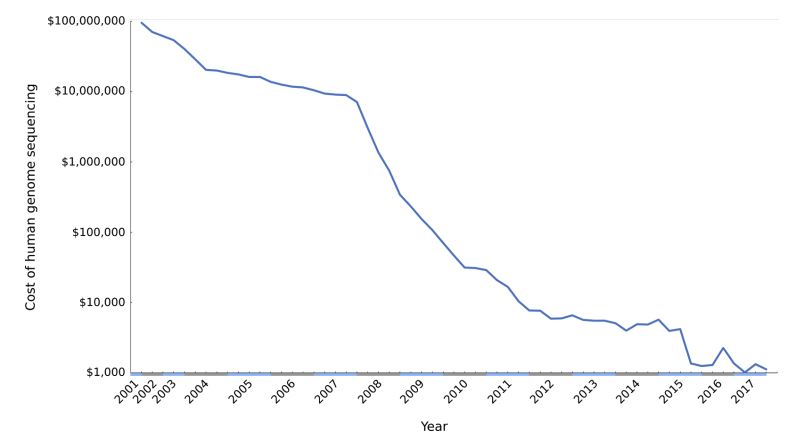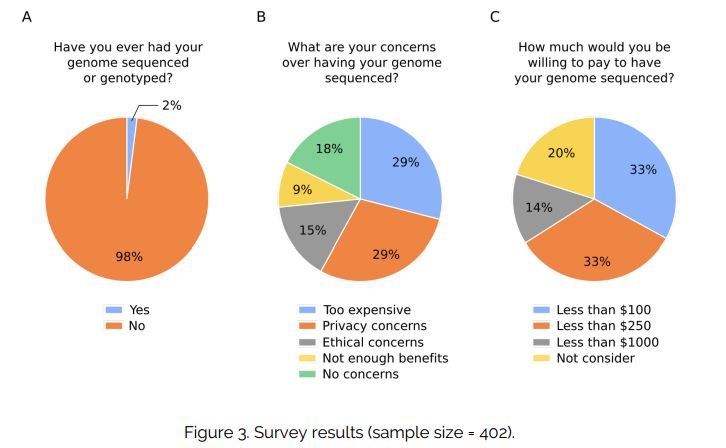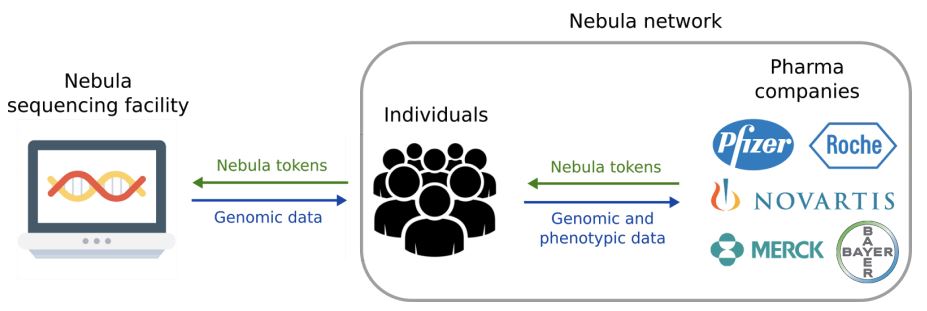This startup wants to sequence your genome and pays you to put your genes on a blockchain

In 2001, the first human genome was sequenced at a cost of $3 billion. With advances in technology, it costs less than $1000 today to perform the same human genome sequencing. In a few years the price will drop below $100. As the price drops, it will become more affordable to perform personal human genome sequencing. Nebula Genomics is a new genetic testing company that wants to sequence your genome and also pay you to put your genes on a blockchain. The new startup is founded by Harvard University DNA sequencing pioneer, George Church, is Blockchain-enabled genomic data sharing and analysis platform.
Unlike the the two leading consumer genomics companies, Ancestry.com and 23andMe, that use customers’ data for commercial purposes without compensation, Nebula Genomics wants to help you understand your genome, cure diseases and give you control over your own genetic data. Best known as the father of the Human Genome Project, George Church launched a new venture to make DNA sequencing cheaper by using blockchain, the technology that underlies cryptocurrency like bitcoin. Each year, Biotech and Pharma companies have spent billions of dollars to acquire genomic data.

Human genome sequencing cost 2001 – 2017 – Source: Nebula Genomics
Nebula aims to lead the emerging market by understanding and overcoming key obstacles. The company wants to accelerate genomic data growth by significantly reducing the costs of personal genome sequencing, enhancing genomic data protection, enabling buyers to efficiently acquire genomic data, and addressing the challenges of genomic big data. To accomplish this, the company tapping into through decentralization, cryptography, and utilization of the blockchain.
Ancestry (ancestry.com) and 23andMe (23andme.com) are currently the two leading personal genomics companies. However, these companies use outdated DNA microarray-based genotyping for their genetic tests. Their method is significantly less powerful alternative to DNA sequencing. Instead of sequencing continuous stretches of DNA, genotyping identifies single letters spaced at approximately regular intervals across the genome. While human whole genome sequencing determines ~ 6.4 billion letters, microarray-based genotyping used by 23andMe and Ancestry
identifies letters at only ~ 600.000 positions. As a result. it generates small amounts of data that are of limited value to individual data owners and researchers.
Scientists need these large genomic datasets to identify causes of disease and develop cures. However, growth of the genomic data market is hindered by small data quantities, data fragmentation, lack of data standardization and slow data acquisition. Nebula Genomics now wants to leverage blockchain technology to eliminate middlemen and empower people to own their personal genomic data. In so doing, they will be able to lower sequencing costs and enhance data privacy, resulting in growth of genomic data. Their open protocol will leverage the genomic data growth by enabling data buyers to efficiently aggregate standardized data from many individual people and genomic databanks.
The other challenge facing genome sequencing is the adoption rate. According to the latest survey, only 2% of people have ever had their genome sequenced. As shown below, the low penetration rate is due in part to privacy and ethical concerns and cost.

Traditional Model
Shown below is the traditional business model of direct-to-consumer personal genomics where people pay to genome companies to sequence or genotype their genomes and receive analysis results. Personal genomics companies keep the genomic data and sell it to pharma and biotech companies that use the data for research and development. This model fails to address the current challenges.

Nebula Model
The Nebula model, shown below, eliminates personal genomics companies as middlemen between data owners and data buyers. Instead, data owners can acquire their personal genomic data from Nebula sequencing facilities or other sources, join the Nebula blockchain-based, peer-to-peer network and directly connect with data buyers. Nebula model reduces effective sequencing costs and enhances protection ofpersonal genomic data. It also satisfies the needs of data buyers in regards to data availability, data acquisition logistics and resources needed for genomic big data.


